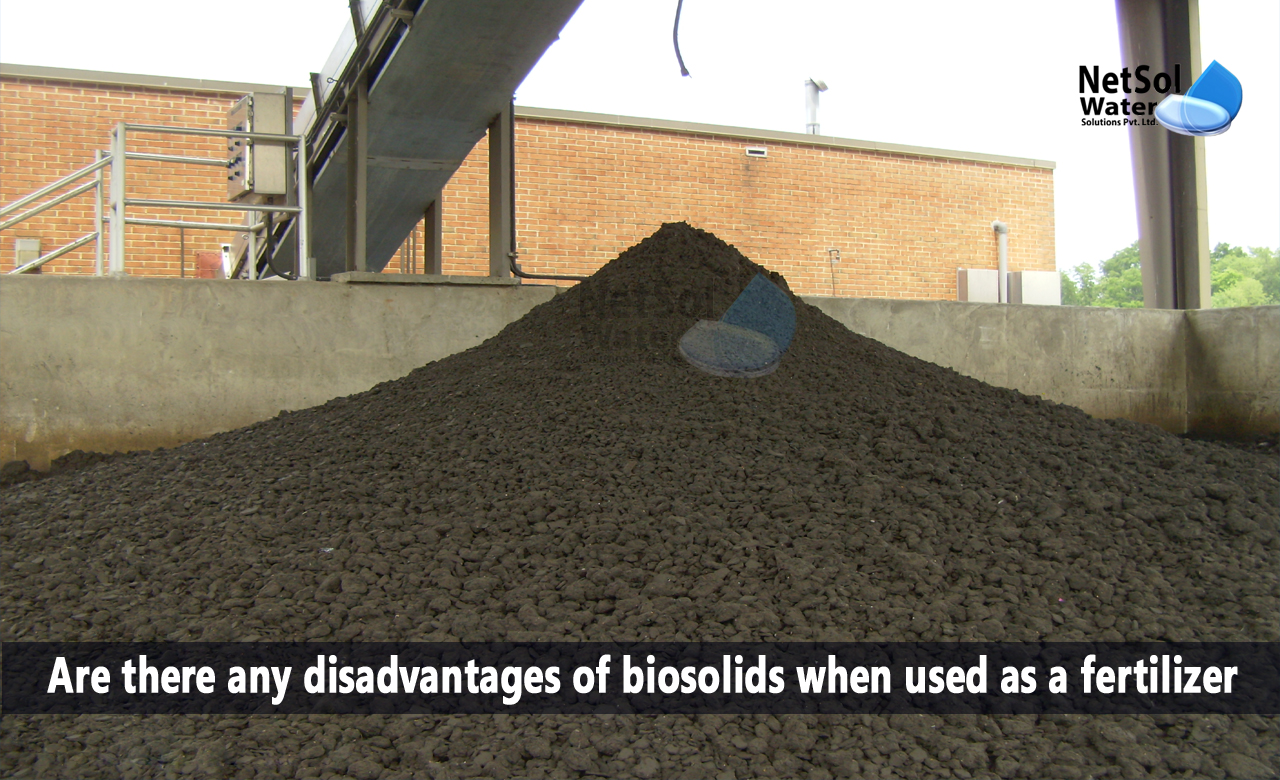Are there any disadvantages of biosolids when used as a fertilizer?
Animal manures applied to pastures and fields have been known to increase soil fertility for ages among farmers. The scientific and agricultural communities have learned through decades of research, that municipal sludge, also known as "biosolids," contains significant minerals and organic materials, and enrich the soil similarly to animal manures.
Biosolids are organic solids that have undergone treatment to stabilize the organic content, and lower the number of pathogens or disease-causing organisms.
Besides the ad?vantages of using biosolids as a fertilizer, let’s understand the disadvantages of biosolids when they are used as a fertilizer!
Odours, the presence of certain metals, worries about infections, and the potential over application of nutrients, are the main drawbacks of using biosolids.
· Odour
Public odour concerns might arise from the use of manure as well as biosolids. Odour concerns can be managed using strategies like planting vegetation buffers, putting biosolids into the soil, timing the application, etc.
· Metals
While, many metals, like zinc and copper, are necessary for plant growth, other metals in excess can have negative effects on plant or animal health.
The amount of metals that biosolids can contain and be applied to the ground, are restricted. These restrictions are based on the lowest concentration of a given metal, which might be harmful to humans, animals, or plants.
For instance, the arsenic limit is determined by how much arsenic would be harmful to a child, if they ate soil that had been mixed with biosolids.
Additionally, when the pH of the soil is close to neutral, the majority of metals do not readily enter plants or water. The pH of the soil must be kept at 6.5 or higher in accordance with the Environmental Protection Division's, "Guidelines for Land Application of Sewage Sludge (Biosolids) at Agronomic Rates" in India.
Molybdenum, arsenic, and selenium are a few metals that become more accessible, and flow more easily into plants at pH levels over 7.0 to 7.5, so soils shouldn't be over-limed to prevent this from happening.
· Over application of nutrients
Like with any other kind of fertilizer, issues can arise from using too much of biosolids. Excess nitrogen or phosphorus can enter surface water or groundwater, if biosolids are not provided so that plants can utilize the nutrients or the soil can't keep them.
High nitrate concentrations in fodder brought on by excessive nitrogen application, can potentially result in the death of animals consuming the forage.
Typically, biosolids are administered at a rate to satisfy the crop's nitrogen requirements. The phosphorus content of biosolids may be relatively high, allowing for the application of more phosphorus, than what the plants actually require.
But, phosphorus can accumulate in the soil over time. Excess phosphorus may enter surface water with repeated application, leading to pollution issues. By combining biosolids with other fertilizer sources, you can avoid applying too many nutrients by using a nutrient management strategy.
· Pathogens
Some people worry that biosolids can spread disease. Since, biosolids undergo substantial treatment, pathogens are scarce or absent. While, certain pathogens are still present, Class B biosolids are also treated to lower their levels.
Conclusion
For local authorities and operators, the growing amount of biosolids generated by wastewater treatment, in tandem with population growth and urban sprawl, is a major source of concern. Biosolid treatment is now required in order to recover products and reduce volume.
For further information or to make a purchase of advanced water and wastewater treatment plants, please contact us at +91-9650608473 or enquiry@netsolwater.com



